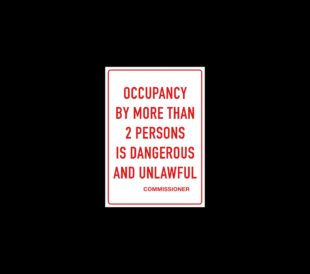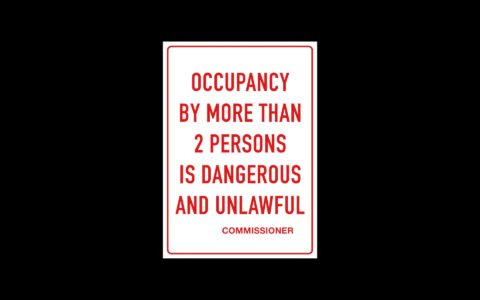Understanding Social Anxiety: Common Myths Debunked
Christian Counselor Spokane
No one is immune to social anxiety. We all experience that familiar feeling, whether we’re faced with a sporting event, social gathering, speech, performance, first date, or the dreaded job interview! This kind of anxiety is common, expected, and often fleeting. In that sense, not all feelings of anxiety are cause for concern.
 Anxiety becomes problematic when it consumes every aspect of our lives, hindering us from functioning (not to mention thriving) in society. In this article, we will focus on social anxiety
Anxiety becomes problematic when it consumes every aspect of our lives, hindering us from functioning (not to mention thriving) in society. In this article, we will focus on social anxiety
According to the National Alliance on Mental Illness, social anxiety can cause intense fear of social interactions, often driven by worries about being humiliated. Someone with this kind of anxiety might not take part in conversations or social events for fear of appearing “stupid,” or not knowing what to say. Because of this, they can become increasingly isolated over time.
Its symptoms can be easy to miss, or simply mislabeled as garden variety “introversion” or “shyness.” This can make it difficult to know when to seek help.
Below are some signs and symptoms to look out for. (This is by no means an exhaustive list!)
- Fear of social gatherings and events based on an intense and potentially irrational concern that you will be humiliated, judged, or otherwise embarrassed
- Intense fear of rejection
- Fear of being the center of attention
- Apprehensive rumination in the days/hours leading up to some or all social events
- Becoming overly critical of your “performance”during/after any social interaction or event, even when you experience positive feedback
- Persistent feeling that you are being watched during social events
- Attuning to signs of disapproval from others during social events
- Going to great lengths to avoid social events
- Suffering from the physical symptoms of anxiety during social events, like rapid heartbeat, nausea, trembling, sweating, tight chest, and blushing
Myths About Social Anxiety

Our understanding of social anxiety has been hindered by some commonly accepted myths and misconceptions. Below is a list of some myths and misconceptions in dire need of being dispelled!
People with social anxiety prefer to be alone.
Human beings are social creatures. We find security, comfort, connection, and a sense of identity in the relationships we form. Like everyone else, people who struggle with social anxiety yearn for deep, meaningful relationships. In other words, they are by no means “happier” when alone.
They might isolate themselves becauseof their social anxiety, but this does not mean they prefer their hermit cave! If/when approached for some meaningful conversation in a safe social space, they can (and often do) share their thoughts and ideas with the best of ‘em!
Only introverted, quiet people experience it.
Extroverts are commonly thought to be outgoing, talkative, assertive, and the life of the party. It is therefore hard for people to believe that extroverts also struggle with social anxiety. Unfortunately, our personalities don’t always protect us from the fear of being judged by others or humiliating ourselves.
The question, therefore, is not whether extroverts suffer from it, but how Extroverts find themselves in a uniquely difficult situation, in that they fear the very social interactions they so naturally crave. Although they might jump into that social event head first, the joy of socializing is often stripped away by the fear of being judged by others.
The root cause is trauma.
 While it can be associated with trauma, this is not everyone’s experience. There is no one reason why people develop social anxiety, as there are several environmental, social, and genetic factors at play. For this reason, those who experience it can benefit from working with trained professionals who can help them process the underlying causes and guide them towards recovery.
While it can be associated with trauma, this is not everyone’s experience. There is no one reason why people develop social anxiety, as there are several environmental, social, and genetic factors at play. For this reason, those who experience it can benefit from working with trained professionals who can help them process the underlying causes and guide them towards recovery.
People with social anxiety are anti-social.
An anti-social person is against the very fabric of society and intentionally displays behaviors that cause annoyance and disapproval from others. Anti-social people also lack empathy and are at times out to harm other people. While it may be difficult to understand the behavior of someone experiencing social anxiety, they do not wish others harm and should not be labeled as “anti-social” just because they’d rather hang out with the family dog in the corner!
Those with social anxiety don’t like talking.
Those experiencing social anxiety are often observed sitting alone and/or withdrawing from conversations and social interactions. This is not because they don’t want to talk. Rather, their fear causes them to withdraw. They often struggle with initiating conversations as a result and can be misperceived as uninterested or aloof.
 It is fleeting and therefore harmless.
It is fleeting and therefore harmless.
Social anxiety develops and manifests itself in people over the course of time. Others may think it’s a “phase” that will pass, and the person experiencing it may even think that they will eventually “get over it.” It is important to understand that it is a complicated, persistent, and distressing experience.
It is not fleeting and can hinder a person’s ability to function and thrive in society. Our ability to relate and connect with others is paramount, whether it be at work, in life, at church, or in our romantic relationships. While social anxiety is a difficult experience to manage, it can be treated with the right interventions.
Tips for overcoming.
When you experience an intense, frequent, and persistent fear of being judged, criticized, or embarrassed, life becomes more about survival than anything else. In that way, social anxiety can cause untold complications if left untreated. Most of our success in life is directly linked to how we relate to others. This means that struggling with social anxiety often hinders our ability to develop meaningful, fulfilling relationships and negatively impacts our self-esteem and sense of worth.
This is why it is important for it to be diagnosed and treated early!
Dealing with social anxiety can be very lonely, yet when those around us understand and validate our experiences, that’s half the journey. Knowing and understanding that social anxiety can be treated brings hope to those who suffer from it. If, through this article, you identify with some of the signs of social anxiety and want to understand more, please get in touch. We have trained Christian therapists who are there to walk you through the journey.
Reference:
“Depressed”, Courtesy of Joice Kelly, Unsplash.com, CC0 License; “Hiding in Bed”, Courtesy of Alexandra Gorn, Unsplash.com, CC0 License; “Sitting Alone”, Courtesy of Ismail Hamzah, Unsplash.com, CC0 License; “Occupancy Sign”, Courtesy of Visuals, Unsplash.com, CC0 License





